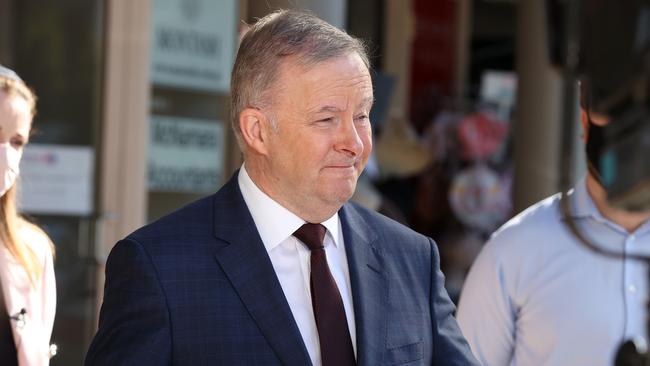Labor split over assisted dying law
Doctors who give advice on voluntary assisted dying to terminally ill patients remotely will remain at risk of federal prosecution if Anthony Albanese is PM.

Doctors who give advice on voluntary assisted dying to terminally ill patients over the phone or internet will remain at risk of federal prosecution if Anthony Albanese is prime minister.
Dying Queenslanders will be able to legally end their lives after voluntary assisted dying legislation passes state parliament in mid-September.
But those living in regional and remote parts of the country will not have equal access to the scheme unless the Commonwealth amends its legislation which prohibits “inciting or counselling” suicide over the phone or internet.
The federal government last month rejected a plea from Queensland Premier Annastacia Palaszczuk to amend the criminal code to prevent doctors being hauled before the courts.
The Commonwealth Director of Public Prosecutions has also refused to issue prosecutorial guidelines.
But in a blow to the five states with assisted dying legislation passed, or before parliament, doctors will remain at risk of legal action under a federal Labor government.
Queensland Acting Premier Steven Miles confirmed the federal arm of the party had given no assurances it would change the law if successful at the upcoming election.
“I have discussed it with them but we do not have an assurance from them; we will continue to have those discussions,” he said.
Mr Albanese’s office and his health spokesman Mark Butler did not respond to repeated requests for comment on the issue.
Queensland’s legislation, which closely mirrors laws passed in four other states, would require two doctors to sign off before the lethal dose was administered.
National laws passed in 2005 prevent doctors from encouraging suicide by phone, email or videoconference, punishable by a fine of $222,000.
Mr Miles said that if the laws were not changed the state would issue advice to doctors about what they can and cannot say on telehealth services, as done in Victoria. “But let’s remember what this decision from the Commonwealth means ... people in rural, remote and regional parts of the state that have less access to more highly trained doctors may not be able to access the same level of services as people in the cities can.”
At a Queensland parliamentary inquiry examining the laws, veteran broadcaster and assisted dying advocate Andrew Denton said there was “clearly a role” for telehealth in any Australian assisted dying scheme.
Health consumers Queensland advocate Melissa Fox said unless rules were changed, people in regional communities would be “penalised due to a postcode lottery”.




To join the conversation, please log in. Don't have an account? Register
Join the conversation, you are commenting as Logout